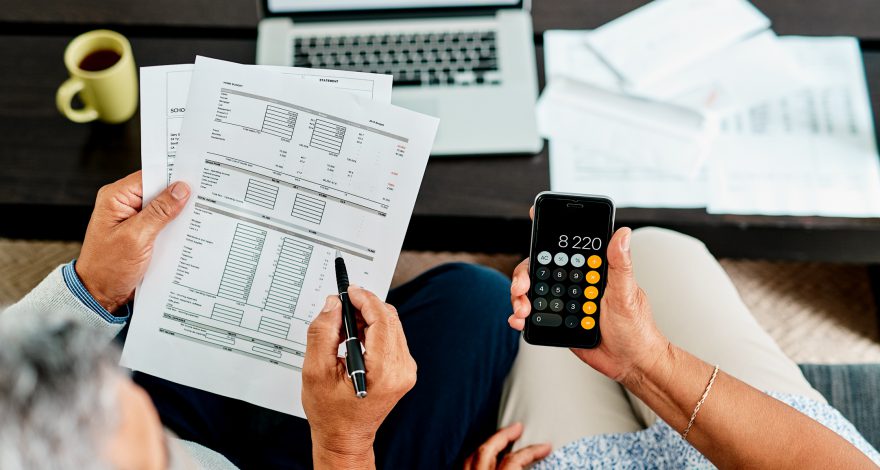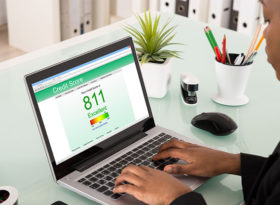 Budgeting
Budgeting
Budgeting on a low income
How to make ends meet on a low or single income:
- Track income and expenses
- Prioritise needs over wants
- Request to defer bills and payments
- Find and apply for government support
The COVID-19 crisis has dramatically affected the lives of hardworking people all over Australia – and the world. The reaction to the pandemic, while necessary to protect people’s health and wellbeing, has undeniably impacted people’s livelihoods as workplaces and even entire industries close down.
Even for those who have luckily escaped these widespread job losses, reduced hours and wages are common across the economy.
But before you reach for the credit card, dip into your Super, or apply for a loan, there are a few things you can do to streamline your finances without additional debt. While there is some assistance available to affected people, through deferrals and government support, the first step is to be more conscious about your financial habits.
1. Keep track of what’s coming in and going out
How much do you earn? How much do you spend?
Most of us can only answer these two questions very roughly. We know around how much comes in, and we have an idea of how much is usually left by the next paycheck. We probably have a general idea of some regular expenses, too, but a lot of our spending would be a guess. This is fine for the good times, but for now it’s a habit to break.
First, identify and record your regular monthly income. This may be simple if it’s paid as a salary regularly whether weekly, fortnightly or monthly. If this is not the case for you, you will need to get your last few payslips and average them out.
Next, make note of all of your regular expenses and bills. Go through your account statement and highlight any direct debits like rent, phone bills, insurance, Netflix or repayments. Have a look at regular purchases, too, such as your weekly supermarket shopping.
Now, begin tracking every purchase you make – no matter how big or how small, or whether it’s cash or card. You can carry a small notepad, or simply record them on your phone as you go, and enter them into your list regularly.
You might find that your purchase habits change as you actively think about what you’re buying. This is OK – it’s the beginning of a new habit forming.
Once you have a few weeks or a month of records, it’s time to add everything up. If you’re working in a spreadsheet it’s easy to add everything together, as well as begin grouping similar expenses together.
Are your expenses higher than your income? You’ll need to figure out some things that you can go without. It’s a stereotype, but some of the easiest savings to make are discretionary impulse buys, like coffee and prepared food. Try carrying a drink bottle and making coffee at home.
Are you surprised by how much some things cost? Don’t worry, this is very common. It’s easy to set and forget about things like subscriptions and streaming services. Try seeing if there’s a cheaper option available, or whether you can simply pause or unsubscribe.
2. Identify what you need vs. what you want
Which of your expenses are necessary? What can you easily do without? And what lies somewhere in between?
From your In-Out tracker you’ve already completed, you should have a solid understanding of where your money is going each month.
Some of these expenses are going to be necessary – such as rent, utility bills and food. There are probably a few that are completely discretionary, too. It’s ok – we are allowed to treat ourselves from time to time.
Your goal is to identify as many expenses as possible that you can avoid, but you need to strike a balance between living and liveability. Restrictions on socialising may provide a good opportunity to curtail some discretionary expenses, such as coffee and lunch. On the other hand, cancelling your Netflix subscription should be a last-ditch option.
Try different levels of ruthlessness as you categorise your spending. See what the impact is of each, and decide how far you’re willing to go.
Remember that while this may be the result of things outside of your control, it’s also an opportunity to create solid new habits for when the economy turns around at the other end.
3. Apply for hardship assistance or support
Is your income simply too low to support you and your family?
There are a range of other measures available to people suffering financial hardship during this pandemic. From additional government payments, to options to delay or defer the payment of bills, there are options to help people through.
Nobody likes queuing hat-in-hand for welfare payments. For many of the people visiting Centrelink in the past weeks, it’s been the first time in their lives they’ve needed to do so.
Landlords and utility providers have also been instructed to be lenient in payment terms, and that nobody can be evicted during or immediately after the crisis.
There are a range of different payments, benefits and concessions available. Some places to seek additional assistance are:
- Centrelink – The government has increased payments to all Australians to help people manage during this economic downturn. Payments and partial payments are available to people with varying incomes. Seek more information from them regarding what you’re eligible for, or visit their COVID-19 Information Page for more specific details of services available.
- Utilities – Most likely, your electricity and gas providers will have payment plans to help you if you’re unable to pay your utility bills. . Additionally, phone and internet providers have a variety of assistance packages available – Telstra has partnerships with community organisations to help customers access payment support.
- Community Support Organisations – There are various organisations and charities that provide support products and services for Australians experiencing financial hardship. Try searching for support groups in your local area that can help with problems you are experiencing.
We’re here to help
This is a difficult time for Australians everywhere. If you are a Credit24 customer and are experiencing difficulty making your loan repayments, please reach out our Payments Team on 1300 293 000 to speak about your options.




